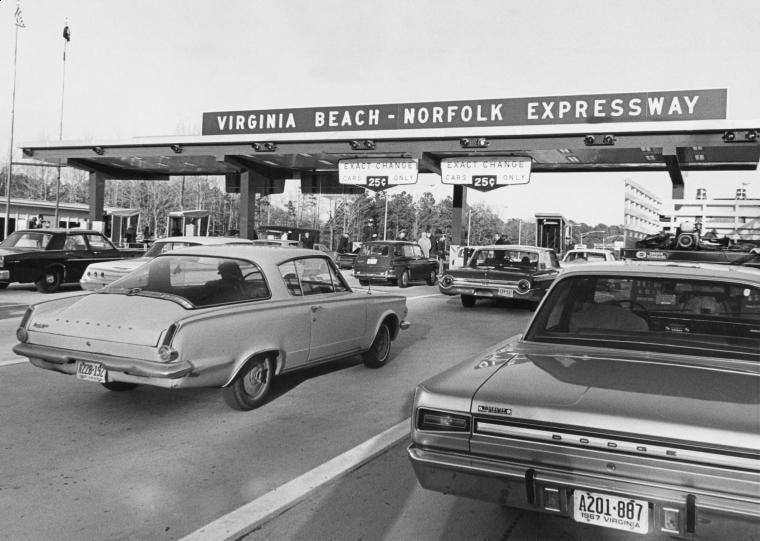| You know how I hate to say I told you so, but … For years now, I have been saying that the future of highway funding in Utah must involve toll roads — lots of them, and with prices that change all day long. And now, in a Senate floor debate on Monday that escaped the notice of most Utahns, several of the state’s leaders acknowledged this as their long-term plan. |
| | Sen. President Wayne Niederhauser is sponsoring a bill that, for outward purposes, would allow the Utah Department of Transportation to easily toll the road through Little Cottonwood Canyon by capturing photos of license plates. But really, the bill would lay the groundwork for something much broader. Some day, every lane of I-15 might require a toll, and the amount charged would depend on the level of traffic congestion at the moment. Not only that, many other roads could be tolled, as well. It would be like driving along the East coast, only without any tollbooths and without having to keep stacks of quarters on hand. You would be charged automatically, perhaps billed through the mail, through some online fund you establish and keep supplied with money or through some other electronic means. And frankly, this is good news. Well, let me qualify that a bit. The very best news would be if lawmakers announced they would be both instituting congestion pricing tolls on major highways and simultaneously eliminating all gas taxes To be sure, nobody said during Monday’s floor debate that this would NOT happen. But then, Monday’s floor debate wasn’t really about widespread tolling, nor does Niederhauser’s bill allow for such a thing. State law allows tolling only on new or expanded roads, not existing ones, so you can put away your pitchforks for a while. But his bill would allow UDOT to begin using the latest technology for collecting license plate numbers while charging people to go up Little Cottonwood Canyon, and Niederhauser and others couldn’t help themselves from, if you’ll pardon the pun, looking down the road. Niederhauser said of his SB71, “All it’s doing is allowing a more robust way to electronic toll, which is the future, by the way, for what we’re going to do on our roads. Not all our roads will be tolled, but at some point, we’re going to have to deal with some other option to fund the roads.” To which Sen. Lincoln Fillmore, R-South Jordan, added that he hopes someday lawmaker will allow tolls on existing roads. “We all see here that gas taxes are becoming increasingly irrelevant when it comes to funding our roads, and I think that the only way to make tolling fair and equitable is to make everybody have an equal amount of skin in the game,” he said. Gas taxes are becoming ineffective for two reasons. People who drive natural gas or electric vehicles don’t have to pay them (and hybrid owners pay very little of them), and people who drive gas-driven cars pay less and less of them as new cars become increasingly fuel efficient. But there is another, more important, reason to impose variable tolls. As Sen. Howard Stephenson, R-Draper, noted during the debate, I-15 has excess capacity for about 18 hours a day, and virtually all day on weekends. If you toll a lot during peak traffic times and hardly anything the rest of the day, people will begin to choose to drive during the cheapest times. That would ease traffic and make the air cleaner. Several years ago, I wrote about an interview I had with Randal O’Toole, a senior fellow at the Cato Institute. He referred to several studies to argue that at least two-thirds of rush-hour drivers don’t absolutely have to be on the road right then. If the price were high enough, they would choose to drive another time. Let me be clear. The state isn’t going to start widespread tolling tomorrow. It won’t even begin tolling Little Cottonwood Canyon unless Niederhauser’s bill can pass the House. The broader argument about tolling existing roads would generate fierce debate and face an uncertain future, if it ever found its way into a bill. But it’s good to know at least some state leaders understand that economic incentives, more than anything else, will help Utah deal with its increasingly congested roads. |


 RSS Feed
RSS Feed

